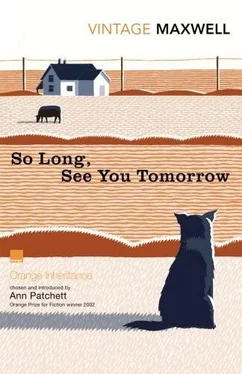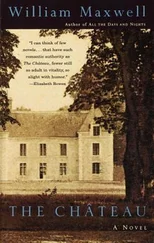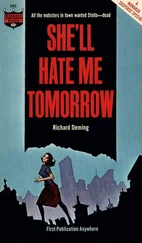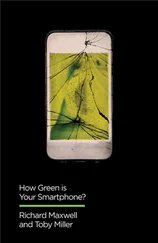After Labor Day I started to school. In a city high school of three thousand students, where there was so much going on after school — band practice, fencing, the Stamp Collectors Club, the History Club, the French Club, the Players, the Orchestra, the Camera Club, the Chess and Chequer Club, the Architectural Society, and so on — the failure to do well in sports didn't make you an object of derision. Once in an outdoor gym class a football came through the air and I managed to hang on to it. This was long after the class had stopped expecting me to catch anything and there was general rejoicing and disbelief. But they never rode me. I was accepted for what I was. It was, after all, not a small town but a big city, and in that school there was no one who was not accepted.
The school building was of grey stone and enormous. It was ten times as big as the old, overcrowded, yellow-brick high school in Lincoln, and the classrooms I had to go to were sometimes far apart. One day during the first week or so of school as I was hurrying along a corridor that was lined with metal lockers I saw Cletus Smith coming toward me. It was as if he had risen from the dead. He didn't speak. I didn't speak. We just kept on walking until we had passed each other. And after that, there was no way that I could not have done it.
Why didn't I speak to him? I guess because I was so surprised. And because I didn't know what to say. I didn't know what was polite in the circumstances. I couldn't say I’m sorry about the murder and all that, could I? In Greek tragedies, the Chorus never attempts to console the innocent bystander but instead, sticking to broad generalities, grieves over the fate of mankind, whose mistake was to have been born in the first place.
If I had been the elderly man I am now I might have simply said his name. Or shaken my head sadly and said, "I know, I know. . " But would that have been any better? I wasn't an elderly man, the bloodhounds had never been after my father, and I didn't know (how could anybody know, how many times has such a thing happened to a thirteen- year-old boy?) what he had been through. Any more than a person who hasn't had a car door slammed on his fingers knows what that is like.
Boys are, from time to time, found hanging from a rafter or killed by a shotgun believed to have gone off accidentally. The wonder is it happens so seldom.
I think now — I think if I had turned and walked along beside him and not said anything, it might have been the right thing to do. But that's what I think now. It has taken me all these years even to imagine doing that, and I had a math class on the second floor, clear at the other end of the building, and there was just barely time to get there before the bell rang.
V THE EMOTION OF OWNERSHIP
Until I was six years old, my father kept a carriage horse, and on hot July evenings we would leave the house on Ninth Street and go driving to cool off. Sometimes the couple who lived next door would be invited to go with us. My brother sat in the front seat, between my father and Dr. Donald, and I sat in back, between Mrs. Donald and my mother. The dog — though we all shouted "Go home!" at him — went too, trotting between the wheels of the carriage with his tongue lolling out.
No matter what street my father chose to drive out of town by, the landscape was much the same once we got out in the country. Plowed fields or pasture, all the way to the horizon. There were trees for the cattle to stand under in the heat of the day, and the fields were separated from each other by Osage-orange hedgerows that were full of nesting birds.
The conversation in the front seat of the carriage was about what was growing on both sides of the road: corn, wheat, rye, oats, alfalfa. The women, blind to this green wealth, talked about sewing and "receipts" — the word they used for recipes. I was of an age to appreciate anything that looked like something it wasn't, and when we passed a cluster of mailboxes I would turn and look back. Long-legged wading birds is what they put me in the mind of, though we were a considerable distance from anything that could be called a body of water.
Dr. Donald owned land near Mason City. The eighty- acre farm that my father might have inherited had, to his undying regret, been sold by my grandparents. Living carefully and putting aside half his salary, he had managed to buy a farm, but it was a little too far away to drive to in a horse and carriage, and since he couldn't look at his own land, as he would undoubtedly have liked to do, he enjoyed looking at other people's. With a gesture of the whip he would direct Dr. Donald's attention to a large and well-built barn and they would be moved to admiration. By nature home- loving, I looked at the houses instead. How bleak they were, compared to our house in town. No big shade trees, no wide front porch to sit on, no neighbors all up and down the street. If there were flowers they didn't amount to more than a few dusty hollyhocks or some nasturtiums growing in a tin basin on a stump.
Suppose Cletus had come to spend the day with me when we were small children. There would have been a dog following us around. And in the barn a horse, a high carriage with red wheels, hay, bags of oats, etc. But then he would have discovered that I had never harnessed the horse to the carriage, and that we couldn't ride him bareback to round up the cows because there weren't any. The house was a lot larger and more comfortable than his, and there was a sand- pile in the back yard, but what was a sandpile compared to the horse barn, the cow barn, sheds, corncribs, the chicken house, the root cellar, the well, the windmill, the horse trough, and a swimming hole? In town there were cardinals and bluebirds and tanagers and Baltimore orioles, but he had the mourning dove, the forever inquiring bob -white? the hoot owl, and the whippoorwill.
My father sold the horse and carriage and tore down the barn and built a garage to put the new seven-passenger Chalmers in, and after that we could drive to Mt. Pulaski, where his farm was. Tagging around after him then, I became aware of a richness that wasn't visual but came from the way the smells were laid on: dried-out wood, rusting farm machinery, the manure pile, the pigpen, yarrow, and onion grass, quicklime from the outhouse, in spring the frost leaving the ground, in summer the hay lying cut in the fields. All things considered, I doubt very much if Cletus would have been eager to change places with me.
The black fertile soil of Logan County was, and so far as I know still is, owned by people whose ancestors came from Kentucky or Indiana or Ohio, bringing with them no more than they could fit into a lurching covered wagon. They staked out as much land as they had a fancy to and cleared it slowly, putting a few more acres under cultivation each year. Their children and grandchildren, born on this land, felt they belonged there. Their great-grandchildren either sold their patrimony or got someone else to farm it for them. Living in town quite comfortably in big old houses set well back from the street, they kept an eye on what was going on out in the country, and when the crops were delivered at the grain elevator they took, as was customary, half the profits. They did not consider a tenant farmer their social equal, any more than a carpenter or a stonemason or a bricklayer. The farmer who owned the land he farmed they could and did accept. When Cletus and I were playing together the question of social position didn't come up. And neither did it come up on the school playground. It was something that descended upon people when they were older. The names on the mailboxes that claimed my attention when I was a small child were proof enough that the tenant farmers were of the same stock as the townspeople who looked down on them socially. Their forebears had perhaps come on a later wave of European migration and found that land was no longer plentiful at a dollar and a quarter an acre. Or they could have been hamstrung by some family misfortune. Or simply lacked the talent for rising in the world.
Читать дальше












